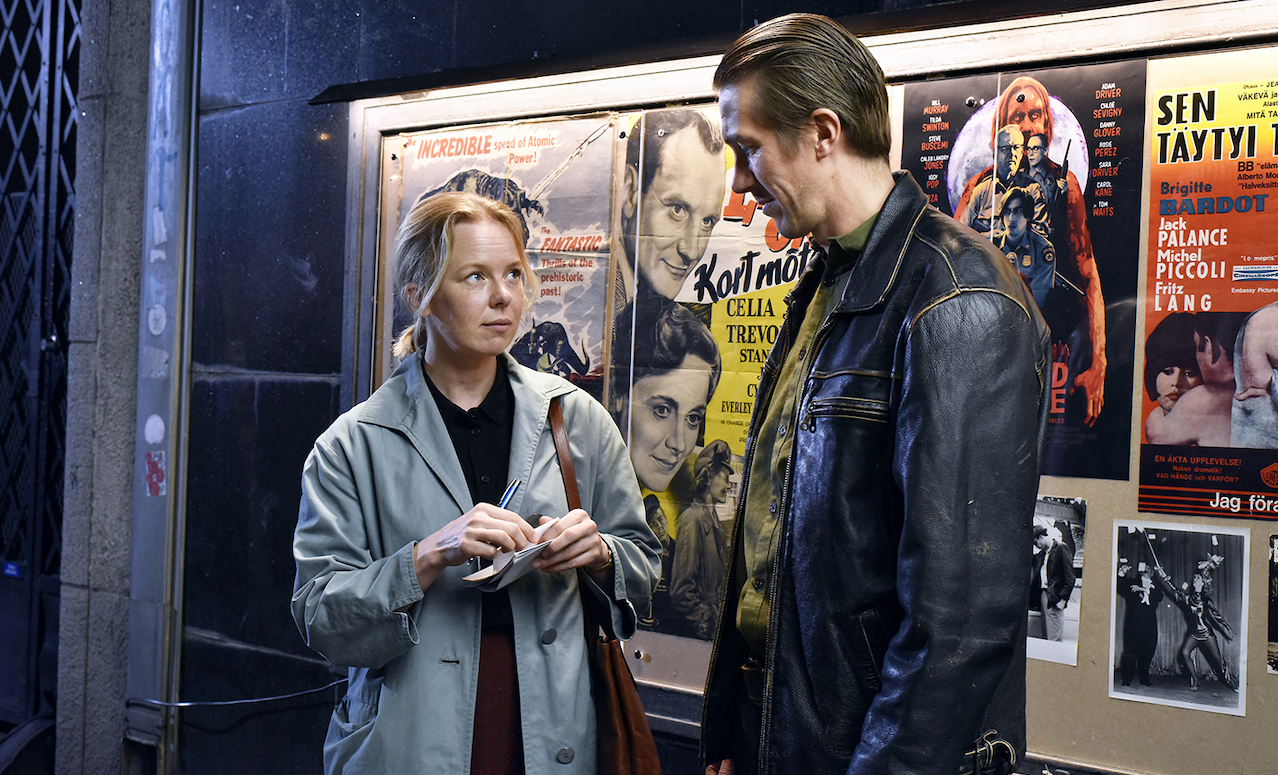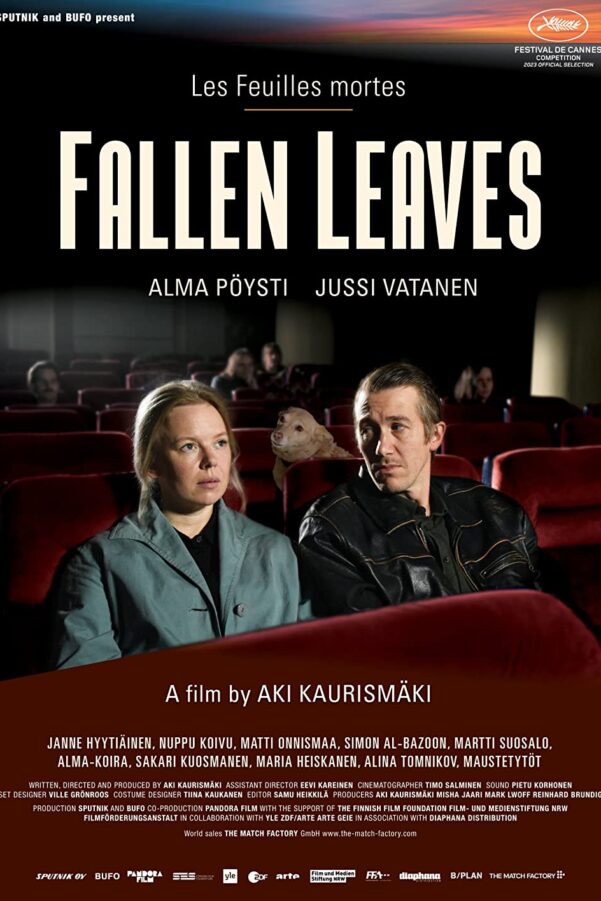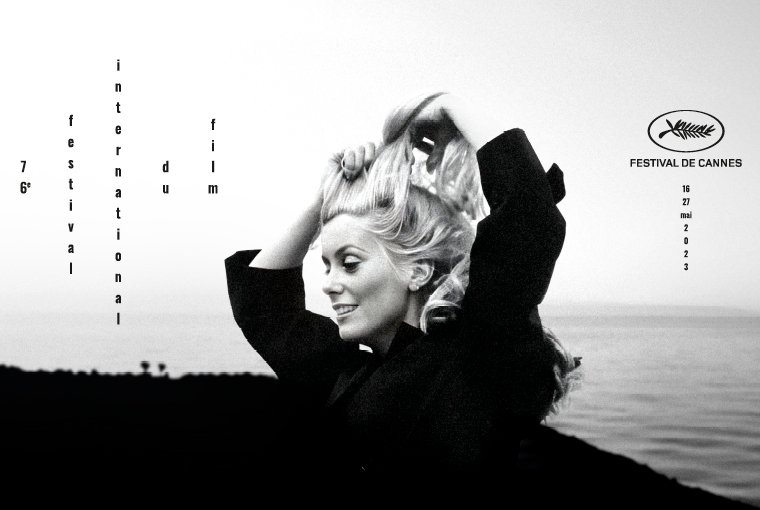Fallen Leaves

Immediately prior to the premiere of Fallen Leaves, Aki Kaurismäki’s red carpet walk was projected onto the screen of the Lumière Theatre, the central locus of the Cannes Film Festival. His anticipatory audience was already being driven to riotous frenzy by the director’s hijacking of a videographer’s camera and the droll whimsy of his unconventionally pointblank posing for the photography line. The Finnish auteur’s entrance to the theatre was greeted with rapture, and the audience’s expression of excitement almost didn’t quell in time for the film’s opening frame. There was no doubt about it: we were in the hands of one of the most individual and idiosyncratic voices in modern European cinema.
The latest entry to Kaurismäki’s now quadrilogy of films chronicling working class Finnish life (after Shadows in Paradise, Ariel and The Match Factory), Fallen Leaves follows the romantic courtship of Ansa (Alma Pöysti), a supermarket worker whose boss reprimands her for taking home expired goods (“They belong in the bin,” he scorns) and Holappa (Jussi Vatanen), a construction worker whose alcoholism prevents him from holding down a job and keeps him trapped in a dependency on late-night dive bars. “Wake up,” the landlord tells a comatose Holappa one night, “or else you won’t be able to come back in the morning.” The two meet on one such night, taking an immediate, yet somewhat distant and reserved liking to each other. Their embryonic romance is initially fraught with awkward stumbling blocks, lost phone numbers and a prolonged ignorance of one another’s names.
Kaurismäki’s Helsinki is a drab one, highlighted by the absurdly named California Bar – a washed-out watering hole where the punters silently and solemnly sink their pints, and where Ansa now earns a cash-in-hand living. The director’s tone is characteristically dry, arch and minimalist, yet bursting with compassion for his flawed characters. It’s a sweet, uncynical representation of mankind emerging from the dehumanising impact of the industrial milieu. But the profound darkness of humanity also drips into the humdrum of the daily slog via radio broadcasts, updating the Finnish people, whose country – lest we forget – borders Russia, of the latest developments in the Ukraine war. Kaurismäki here pays subtle diligence to the fact that this anxiety has seeped into the everyday groove of his nation’s psyche.
The film is also a tribute to the enduring humanity of cinema itself, with the budding lovers’ first date being a trip to the pictures. It’s the universality of the medium that the auteur draws attention to, as well its potential as a means for transcendentalism. The great thing about Fallen Leaves, however, is that it doesn’t just draw attention to great film, but soulfully practises it.
Matthew McMillan
Fallen Leaves does not have a UK release date yet.
Read more reviews from our Cannes Film Festival 2023 coverage here.
For further information about the event visit the Cannes Film Festival website here.
Watch the trailer for Fallen Leaves here:



























Facebook
Twitter
Instagram
YouTube
RSS